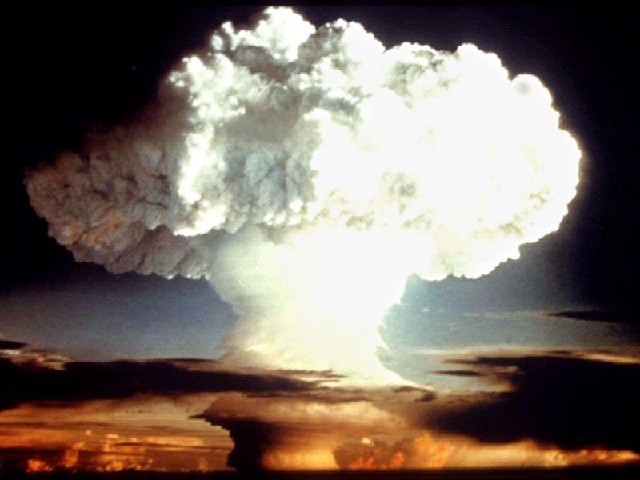
Up to 145,000 people were killed in Hiroshima and up to 90,000 three days later in Nagasaki
Reuters
As escalating tensions between North Korea and the US under Donald Trump prompt fears of a nuclear war, survivors of the only two nuclear attacks to have taken place have issued a warning about the threat posed by atomic weapons.
Survivors of the US attacks on Japanese cities of the Hiroshima and Nagasaki in August 1945 gave their recollection of the deadly bombings and their thoughts, 72 years after the events, on nuclear weapons and the consequences of using them.
Their memories were published in a photo essay for TIME magazine.
Seventy-eight-year-old Takato Michishita, who survived the bombing after his mother had a “bad feeling” and made him stay home from school that say, said: “Dear young people who have never experienced war, Wars begin covertly. If you sense it coming, it may be too late.’
“Japan is the only nation that has experienced a nuclear attack. We must assert, with far more urgency, that nuclear weapons cannot coexist with mankind.
“Average citizens are the primary victims of war, always. Dear young people who have never experienced the horrors of war – I fear that some of you may be taking this hard-earned peace for granted.”
Yoshiro Yamawaki, 83, had to cremate his father after finding him dead. He said: “One can understand the horrors of nuclear warfare by visiting the atomic bomb museums in Hiroshima and Nagasaki, listening to first-hand accounts of hibakusha survivors, and reading archival documents from that period.
“Nuclear weapons should, under no circumstances, be used against humans. However, nuclear powers such as the US and Russia own stockpiles of well over 15,000 nuclear weapons. Not only that, technological advances have given way to a new kind of bomb that can deliver a blast over 1,000 times that of the Hiroshima bombing.
“Weapons of this capacity must be abolished from the Earth. However, in our current political climate we struggle to come to a consensus, and have yet to implement a ban on nuclear weapons. This is largely because nuclear powers are boycotting the agreement.
“I have resigned to the fact that nuclear weapons will not be abolished during the lifetime of us first generation hibakusha survivors. I pray that younger generations will come together to work toward a world free of nuclear weapons.”
Some, however, still cannot find words for what they endured: 92-year-old Kumiko Arakawa lost both of her parents and four of her siblings in the attack. Asked what message she would give to future generations she simply replied: “I can’t think of anything.”
Describing their recollection of the sunny morning of 9 August when the deadly bomb fell from the sky over Nagasaki, survivors mentioned many of the same memories: a flash of blinding white light, a wave of heat and pressure and then scenes of total devastation. Those who survived the Hiroshima bomb recalled similar details.
Many remembered seeing the charred and desperately damaged bodies of the dead and dying. Some of the survivors have suffered lifelong health problems from the radiation they were exposed to.
Fujio Torikoshi, 86, was badly injured by the bomb and was unconscious for several days afterwards.
He said: “I was told that I had until about age 20 to live. Yet here I am seven decades later, aged 86. All I want to do is forget, but the prominent keloid scar on my neck is a daily reminder of the atomic bomb.
"We cannot continue to sacrifice precious lives to warfare. All I can do is pray – earnestly, relentlessly – for world peace.”



